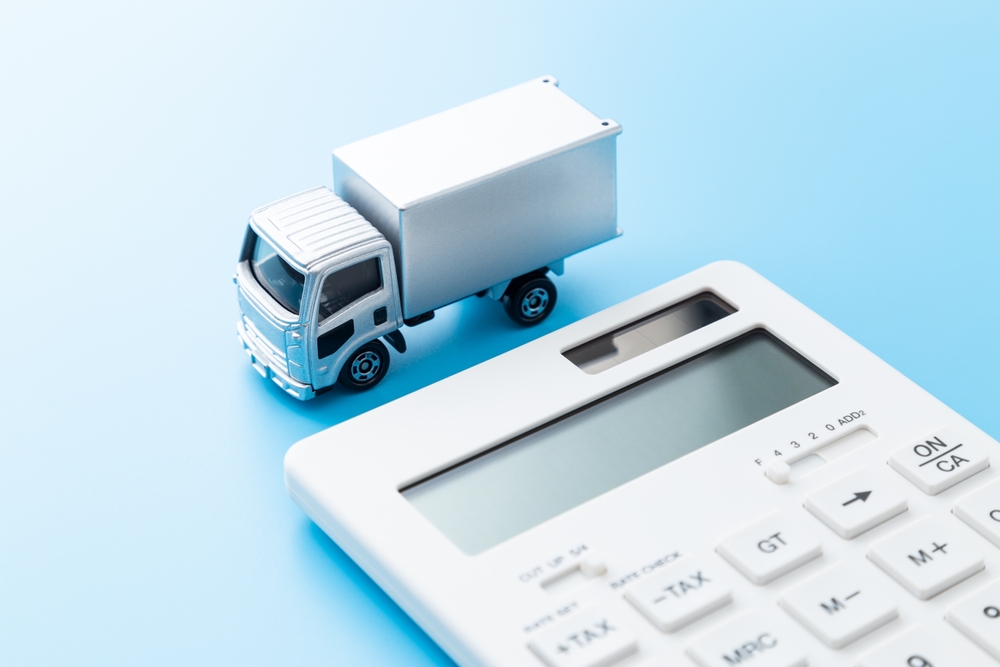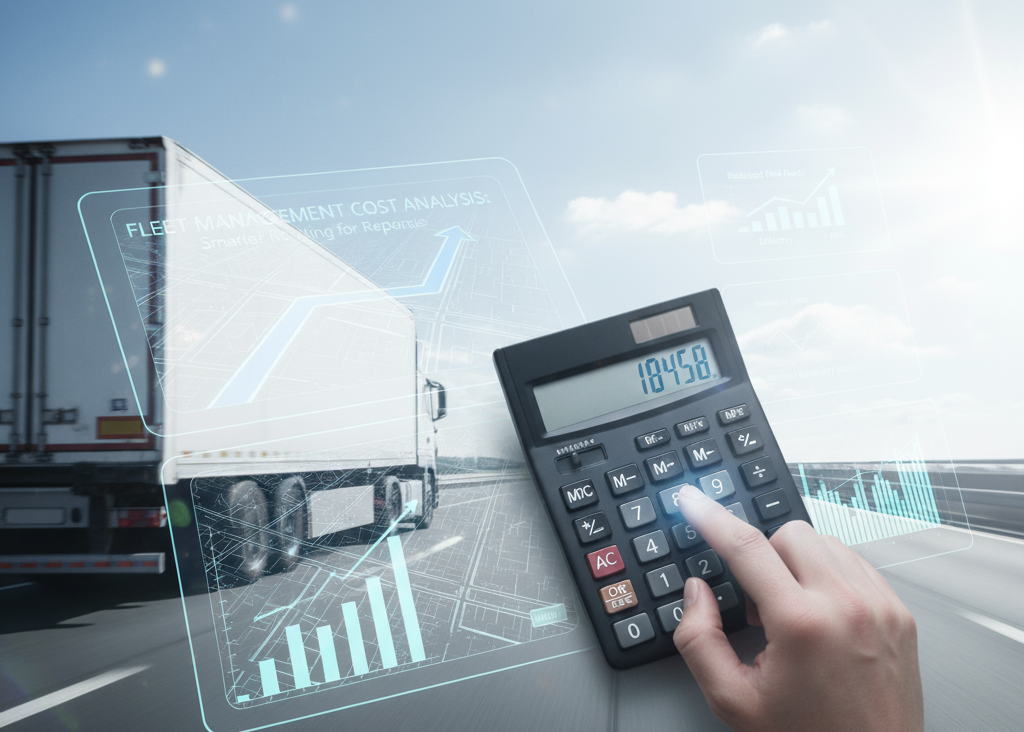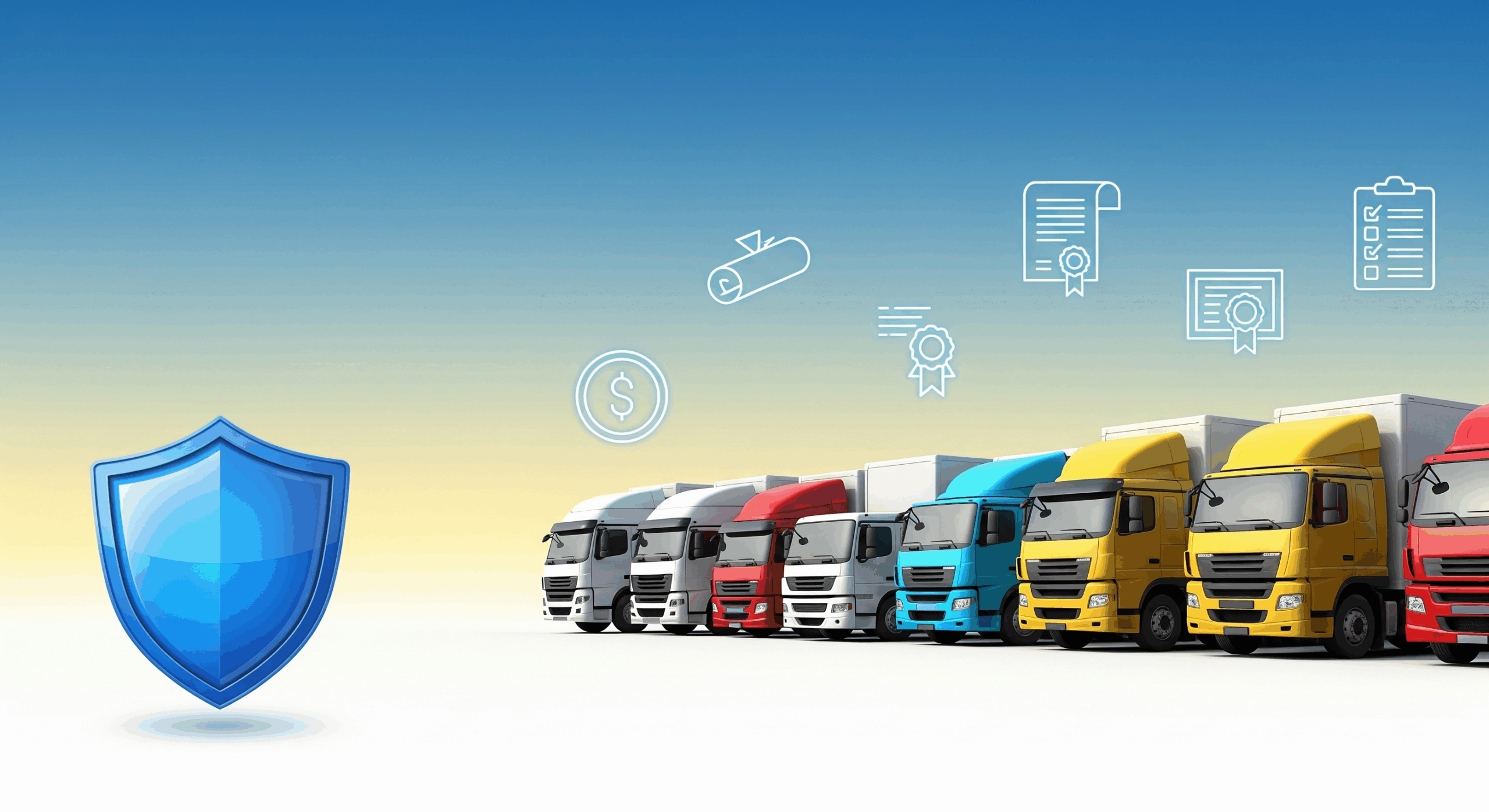Truck driving is more than just life on the open road—it’s also a business. Whether you’re an owner-operator, lease-purchase driver, or company driver, managing finances is a major part of the job. From paying for fuel and maintenance to covering insurance and taxes, truck drivers face a wide range of expenses that can quickly add up.
Understanding your financial responsibilities is essential not only for staying profitable but also for staying compliant with tax regulations. Knowing where your money goes helps you make smarter decisions, avoid unnecessary spending, and prepare for the future—especially during slow seasons or rising fuel prices.
Tracking truck driver expenses accurately can also help reduce stress during tax season. With proper records, you can claim all eligible deductions, minimize your tax liability, and provide clear documentation in the event of an audit. Yet many drivers overlook the importance of daily expense tracking, leading to lost deductions and missed financial opportunities.
This guide provides a comprehensive breakdown of typical truck driver expenses and practical methods for tracking them efficiently—whether you’re running your own rig or managing a fleet. Let’s dive into what costs you need to watch and how to stay on top of your financial game while you’re on the road.
Types of Truck Driver Expenses
Managing your finances as a truck driver starts with understanding the different types of expenses you’ll face. These costs can be grouped into fixed, variable, personal, and administrative categories—each playing a key role in your overall financial planning.
A. Fixed Expenses
These are recurring costs that typically remain the same month-to-month, regardless of how many miles you drive.
Truck Lease or Purchase Payments
Whether you’re financing a truck or leasing through a carrier, your monthly payment is one of your largest fixed expenses. These payments are critical to your business’s operation and must be factored into your overall profit margin.
Insurance Premiums
Truck drivers are required to carry several types of insurance:
- Primary liability – Covers damages or injuries caused in an accident.
- Cargo insurance – Protects the freight being transported.
- Physical damage – Covers repairs or replacement of the truck itself.
- Bobtail insurance – For when the truck is driven without a trailer.
Premiums vary by driving record, equipment value, and operating region.
Permits and Licensing Fees
Depending on your operation, you may need multiple state and federal permits such as:
- CDL licensing renewal
- Heavy use permits for oversize/overweight loads
- DOT numbers and MC authority
These fees often renew annually or semi-annually.
Compliance and Regulatory Fees (IRP, IFTA, HVUT/Form 2290)
Operating across state lines requires:
- IRP (International Registration Plan) – Apportioned registration for multi-state operation.
- IFTA (International Fuel Tax Agreement) – Reports fuel use and pays taxes across jurisdictions.
- Form 2290 / HVUT – Heavy Vehicle Use Tax filed annually with the IRS.
Platforms like ExpressTruckTax simplify HVUT filing and compliance tracking.
B. Variable Expenses
These costs fluctuate based on how far you drive, what routes you take, and how well your equipment is maintained.
Fuel Costs
Fuel is usually the single largest variable expense. Prices change daily, and fuel efficiency can be impacted by your speed, weight, idle time, and driving style.
Maintenance and Repairs
Routine maintenance—oil changes, inspections, fluid refills—helps prevent major repairs. But unexpected breakdowns can lead to costly downtime and towing fees.
Tires and Parts Replacement
Tires wear out with mileage and must meet DOT standards. Brake pads, air filters, and lights are other common parts that need regular replacement.
Tolls and Weigh Station Fees
Driving through certain states or using specific highways may include toll costs. Some weigh stations also charge fees, especially for overweight permits.
Lodging and Meals
For over-the-road (OTR) drivers, overnight stays in motels or truck stop lounges can add up. While per diem allowances help with tax deductions, actual costs vary widely.
Parking and Unloading Fees
Paid parking is becoming more common in congested areas. Some shippers and receivers may also charge unloading or “lumpers” fees, which aren’t always reimbursed.
C. Personal & Living Expenses on the Road
Life on the road comes with day-to-day personal costs that are often underestimated but still impact your budget.
Daily Food and Beverage Costs
Fast food, snacks, and drinks from truck stops add up quickly. Many drivers invest in mini-fridges or slow cookers to reduce eating-out expenses.
Shower/Laundry Access Fees
Truck stops typically charge $10–15 per shower, unless you’re redeeming fuel points. Laundromat use is also a recurring necessity on long hauls.
Communication (Cell Phone, Data Plans)
Reliable communication is essential. High-data mobile plans, GPS apps, and business communication tools are often part of the monthly expense list.
D. Business and Administrative Costs
These are often overlooked but necessary for running a professional and compliant trucking operation.
Accounting or Tax Preparation
Whether you hire a tax professional or use software, accurate income and expense reporting is critical—especially during tax season or if you’re audited.
Office Supplies (Logbooks, Pens, etc.)
Small supplies like notebooks, pens, paper logs, or printer ink can pile up over time and should be recorded as business expenses.
ELD (Electronic Logging Device) Subscriptions
Federal regulations require most drivers to use an ELD to track Hours of Service (HOS). These devices usually come with a monthly fee.
Trucking Software or Tools (like ExpressTruckTax)
Using software to manage taxes, track expenses, and handle HVUT filings can save time, reduce errors, and help maximize deductions. ExpressTruckTax, for example, streamlines the e-filing of Form 2290 and offers tools like VIN correction and tax calculators.
Tax-Deductible Truck Driver Expenses
Understanding which expenses are tax-deductible is crucial for truck drivers—especially owner-operators and lease-purchase drivers. Properly deducting these costs can significantly lower your taxable income and increase your annual savings. Let’s break down what qualifies, which IRS forms are involved, and how to claim credits.
A. Explanation of What Expenses Are Tax-Deductible
Tax-deductible expenses are costs that are both ordinary and necessary to operate your trucking business. The IRS allows you to deduct business-related expenses from your gross income, reducing the amount of income that is subject to taxation.
For truck drivers, this includes a wide variety of costs incurred while operating your vehicle, maintaining compliance, and running your business—whether you’re an owner-operator or a contract driver. Accurate and consistent expense tracking throughout the year is key to maximizing these deductions.
B. Common IRS-Eligible Deductions
Here are some of the most common deductions available to truck drivers:
- Fuel and Oil Costs: Including diesel, DEF fluid, and oil changes.
- Truck Lease or Loan Payments: Interest portion of the payments may be deductible.
- Depreciation of Equipment: For purchased trucks or trailers.
- Insurance Premiums: Liability, physical damage, bobtail, and cargo insurance.
- Maintenance & Repairs: Brake jobs, tires, engine work, and routine servicing.
- Tolls and Parking Fees: When traveling for business.
- Lodging & Per Diem Meals: When you’re away from your tax home for work. The IRS allows a standard per diem rate, which simplifies recordkeeping.
- ELD and Trucking Software Subscriptions: Like those for compliance and tax filing (e.g., ExpressTruckTax).
- Licensing and Permit Fees: CDL renewal, IRP, IFTA, and more.
- Communication Tools: Cell phone and internet used for business.
- Office Supplies: Logbooks, pens, paper, and business forms.
- Accounting or Bookkeeping Fees: Services or software used to prepare and file your taxes.
Keep receipts and documentation for all expenses, especially for those exceeding $75 or involving travel and lodging.
C. Overview of Form 2290 and HVUT
Form 2290, also known as the Heavy Vehicle Use Tax (HVUT) return, must be filed annually with the IRS for any vehicle with a gross weight of 55,000 pounds or more that operates on public highways.
- The tax year runs from July 1 through June 30, with a filing deadline of August 31 each year.
- Once filed, the IRS provides a stamped Schedule 1, which is proof of payment required for vehicle registration and plate renewal.
- HVUT is considered a deductible business expense, as it’s necessary to operate your truck legally.
Platforms like ExpressTruckTax make it easy to e-file Form 2290 and instantly receive your stamped Schedule 1.
D. Tips for Claiming Credits via Form 8849
If you overpaid HVUT or your vehicle qualifies for an exemption, you can file Form 8849 Schedule 6 to claim a refund or tax credit. Situations where you might qualify include:
- Selling or destroying a truck after filing Form 2290.
- Low mileage vehicles: If your truck was used under 5,000 miles (or 7,500 miles for agricultural use) during the tax year.
- Vehicle stolen or totaled during the year.
Tips for Claiming Credits:
- File as soon as the qualifying event occurs—don’t wait until the end of the tax year.
- Keep records such as the bill of sale, insurance report, or mileage logs.
- Use ExpressTruckTax to file Form 8849 easily and track refund status.
Properly deducting expenses and filing for credits can make a significant difference in your yearly tax burden. By using reliable tools and maintaining detailed records, you can keep more of your hard-earned money.
How to Track Truck Driver Expenses
Tracking expenses accurately is one of the smartest moves a truck driver can make. Whether you’re preparing for tax season, applying for a loan, or simply trying to improve your bottom line, keeping a clear record of every dollar spent is essential.
By using a mix of traditional methods and modern technology, truck drivers can stay financially organized and ready for anything—on or off the road.
A. Manual Tracking Methods
Manual tracking methods are low-cost and familiar to many drivers, especially those who prefer writing things down or working offline.
Spreadsheets (Google Sheets, Excel)
Using a spreadsheet is one of the most accessible ways to track expenses. You can create columns for:
- Date
- Expense category (fuel, maintenance, food, tolls, etc.)
- Description
- Amount
- Payment method (cash, credit, debit)
- Notes or receipt reference
Benefits:
- Fully customizable
- Easy to print or share with an accountant
- Free if you already have access to Excel or Google Sheets
Tip: Save your spreadsheet to the cloud (like Google Drive) so it’s always accessible on your phone or laptop.
Paper Logs and Receipt Organizers
If you prefer physical records, paper logs and accordion-style receipt folders are a reliable option.
- Use a daily expense logbook to record transactions.
- Staple or tape receipts to the corresponding log entry.
- Organize folders by month or expense type (fuel, meals, repairs).
This method works well for drivers who like writing things down but requires more time for sorting and transferring data come tax time.
B. Apps and Tools for Expense Tracking
Technology can make tracking truck driver expenses easier, faster, and more accurate. Here are a few trusted digital tools:
Trucking-Specific Apps (e.g., TruckerPath, TruckBytes)
These apps are designed for truckers and often include features such as:
- Expense logging
- Fuel tracking
- Load and route planning
- Maintenance reminders
TruckBytes, for example, offers free bookkeeping specifically for owner-operators.
Expense Tracking Apps (e.g., QuickBooks Self-Employed)
Apps like QuickBooks Self-Employed, Expensify, or Everlance are ideal for freelancers and self-employed workers. They offer:
- Auto-categorization of transactions
- Mileage tracking
- Receipt scanning
- Tax estimate features
These apps can sync with your bank account and help prepare financial reports or tax documents.
Filing Tools Like ExpressTruckTax (for HVUT & VIN Corrections)
ExpressTruckTax isn’t just for filing Form 2290—it can also:
- Help manage compliance-related expenses
- Offer digital copies of your Schedule 1 for recordkeeping
- Track VIN corrections and amendments
- Provide instant filing confirmations and notifications
Using a centralized platform for tax filing and documentation ensures your key expenses don’t get lost or forgotten.
C. Tips for Staying Organized
The key to successful expense tracking is consistency. Here are a few best practices to help you stay organized year-round:
Save and Categorize Receipts
- Use labeled envelopes, digital folders, or receipt-scanning apps.
- Store them by category (fuel, maintenance, meals) or by month.
- Consider using a small scanner or your phone to digitize paper receipts.
Track Expenses Daily or Weekly
- Don’t wait until the end of the month. Regular logging reduces errors and forgetfulness.
- Set reminders on your phone to enter expenses at the same time each day.
Keep Separate Accounts for Business and Personal Use
- Open a dedicated checking account and credit card for your trucking business.
- This makes it easier to identify deductible expenses and prevents accidental mixing of personal charges.
Bonus Tip: If you’re using an accountant or tax preparer, organized expense reports and documentation will save them time—and save you money on their fees.
Tracking expenses doesn’t have to be overwhelming. Whether you’re just starting out or trying to improve your existing system, finding the right tools and habits will help you stay on top of your finances and prepare confidently for tax time.



